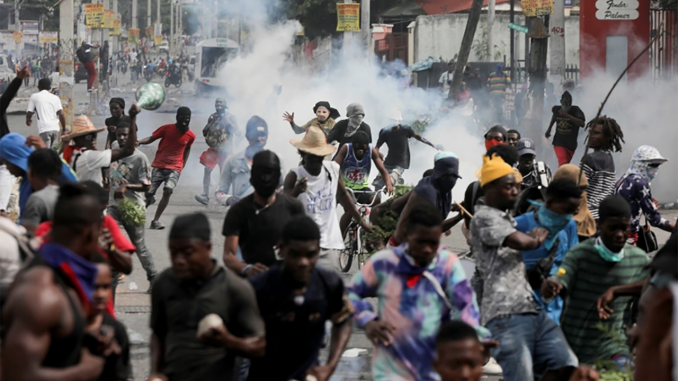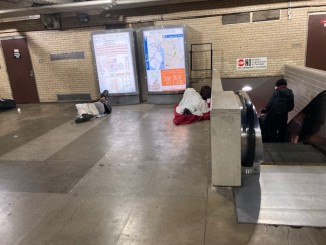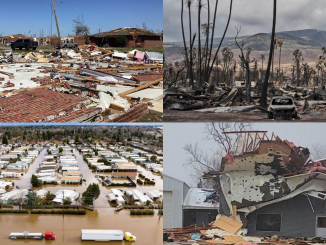
For several weeks, there have been renewed demonstrations and revolts by the Haitian population in opposition to social and economic crisis in the country. This most recent social rebellion was triggered by the decision of the Haitian government to end fuel subsidies in the middle of September.
Haiti, the poorest country in the Western Hemisphere, has experienced waves of mass protest in the past several years, responding to a variety of events that have destabilized the country. Notably, there were mass protests against the deeply unpopular former prime minister, Jovenel MoÏse, given his regime’s economic policies and the negligence of the government in responding to the COVID-19 pandemic.
In the midst of protests against MoÏse’s regime in July 2021, he was assassinated by foreign mercenaries under suspicious circumstances. The murder was never fully investigated. Shortly after this, current Prime Minister Ariel Henry was appointed with the backing of powerful international forces including the United States government, United Nations, and the International Monetary Fund (IMF).
Immediately after this in August 2021, the country experienced one of the most devastating natural disasters in its history, an earthquake that killed over 2,000 people and crippled many aspects of life in the country.
With the destruction from the earthquake and the ongoing COVID-19 pandemic, the country has remained in a state of chaos, with President Henry clinging to power despite being deeply unpopular. Amidst this situation, armed gangs have played an increasingly violent role in Haitian society, patrolling areas of the country while terrorizing and extorting the population. Many of these gangs are linked to ruling factions within Haiti including Henry’s government, who rely on the gangs to help assert control over the country and repress protest movements.
Despite already being unpopular, Henry quickly collaborated with the IMF to impose a variety of austerity measures on the impoverished country. Most recently, this took the form of a decision to end fuel subsidies in September 2022, causing fuel prices to spike massively. This happened as the country is also dealing with an explosive cholera outbreak stemming from unreliable access to drinkable water.
In response to this, mass mobilizations have started again against the government’s policies and the gangs who have wreaked havoc on the country. The mobilizations have intensified, leading the United Nations Secretary General to advocate for an “armed intervention” in Haiti. In addition to this, the U.S. drafted a resolution in the U.N. Security Council encouraging the deployment of forces into Haiti.
While using the gangs and the unstable situation as the pretense for armed intervention, the real motivations of the U.N. and U.S. are to repress the mass movements. They want to bring stability back into the country, given Haiti is a source of low-wage labor for foreign investors in industries such as the apparel industry, and a source of agricultural and natural resource exports.
The U.S. in particular has sought to make Haiti into a greater trade partner in the recent period, with U.S. corporations exploiting cheap Haitian labor through programs such as the Haiti Hemispheric Opportunity through Encouragement (HOPE) program.
This crisis and potential imperialist interventions are the result of this global capitalist system, which has immiserated the Haitian people for generations for the sake of the ruling class of wealthier countries. We must oppose this system and stand in solidarity with brave Haitians who are rising up to demand a better society despite living through these desperate circumstances.




